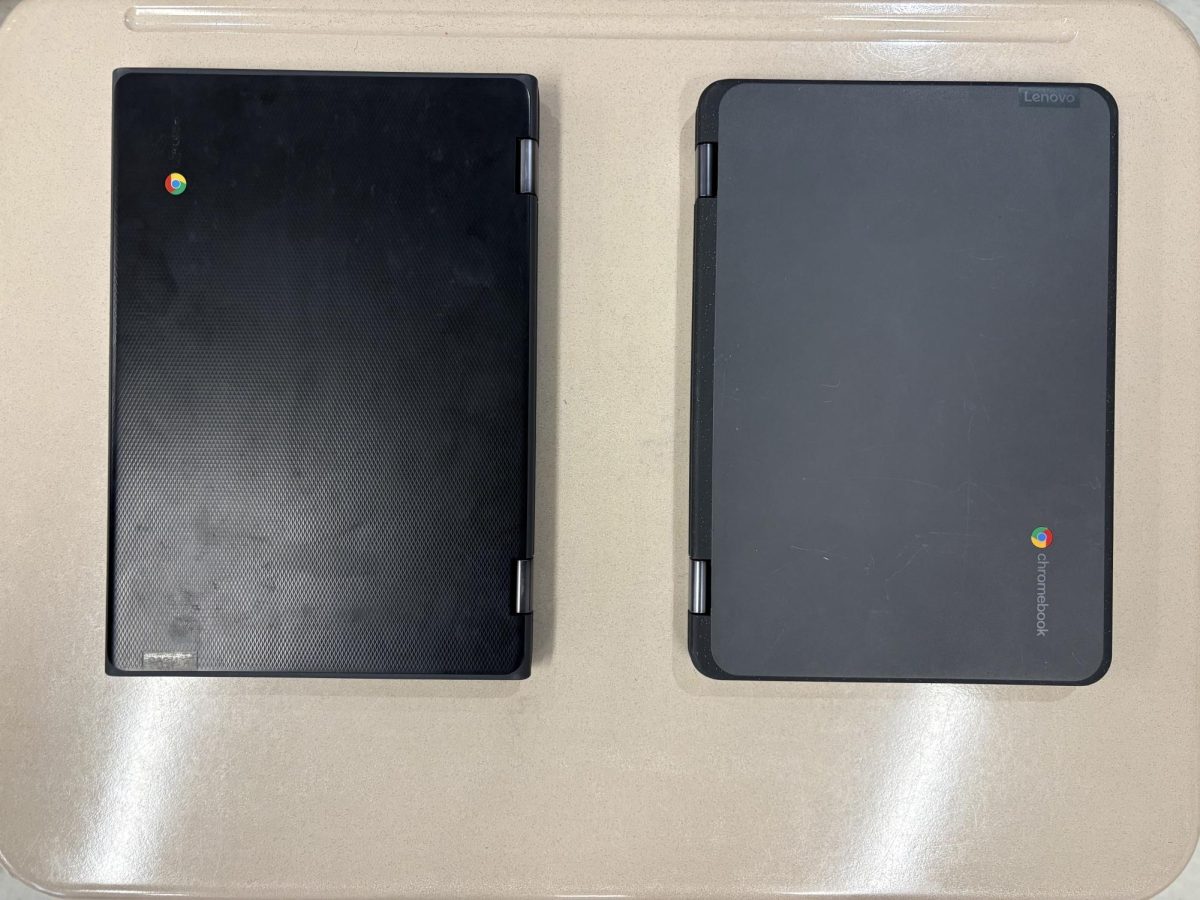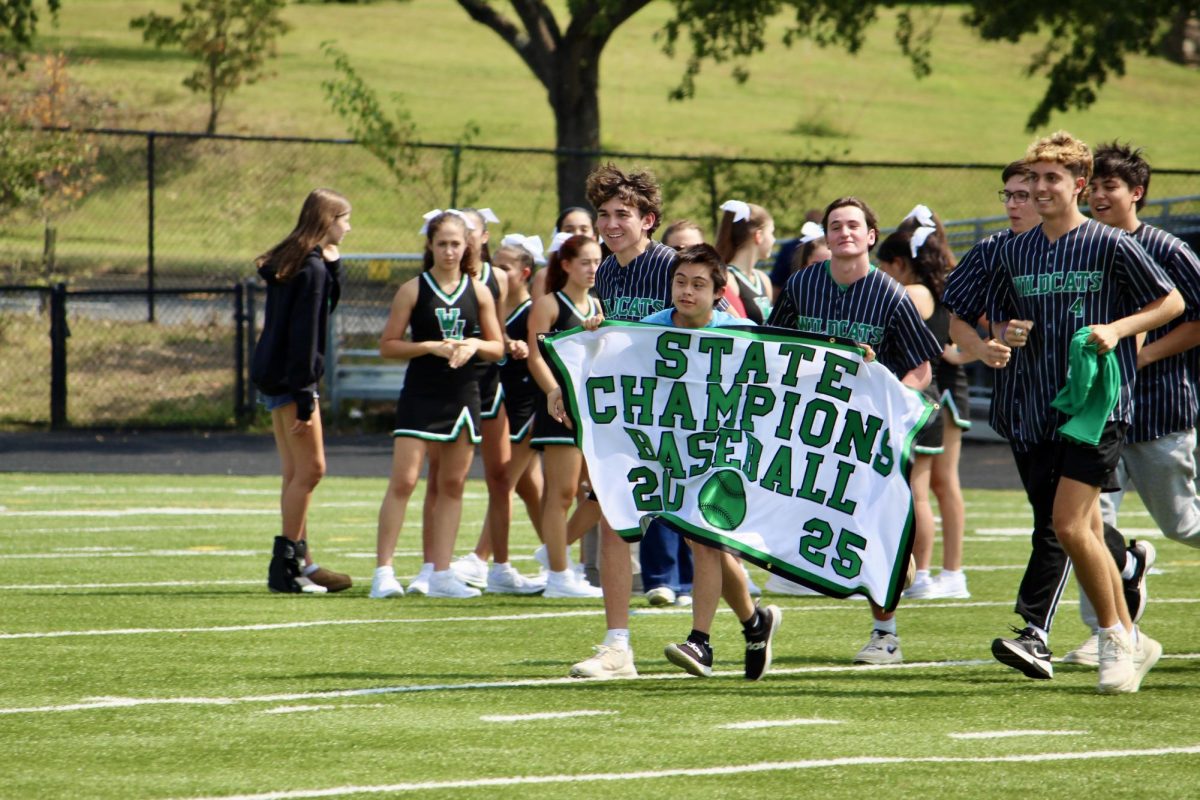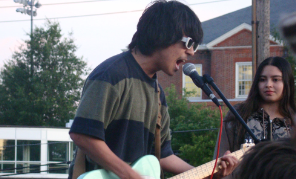The first of three presidential debates between incumbent President Donald Trump and challenger Democratic Nominee former Vice President Joe Biden Tuesday night quickly spiraled into chaos, insults and interruptions, leaving voters uneasy about what’s to come.
The debate was hosted at Case Western Reserve University and was moderated by Fox News’s Chris Wallace. Due to COVID-19 restrictions, the audience was smaller than in previous years, with about 90 people, all of whom were tested beforehand and seated in accordance with social distancing guidelines. Trump and Biden’s podiums were set far apart and there was no handshake at the beginning of the debate.
The debate consisted of mainly open dialogue, prompted by questions asked by Wallace. Questions included topics such as the Supreme Court, healthcare, race relations, violence in cities, COVID-19, the economy and the integrity of the election.
Dialogue quickly turned to bitter insults from both candidates, with Biden referring to Trump as “this clown” early on and Trump insulting Biden’s intelligence. The candidates constantly interrupted one another, leading Biden at one point to say “would you shut up, man?”
The immaturity of the candidates left an impact on many of those watching.
“The moment that really resonated with me was when for multiple minutes the candidates were just speaking over one another while totally off-topic. The moderator was struggling to get back on track and this was in the start of the debate as well. It really set the tone for the evening,” senior Jane Umhofer said.
Uneasiness about what American politics has become was a common take away from the night. Pundits and plebeians alike have begun questioning the need for debates like this, where yelling and insulting is the expectation.
“I kind of think these debates are pointless. There was very little discussion of actual policy and I doubt it did anything to sway voters that are still on the fence… and isn’t that the purpose of the debates?” senior Rebecca Bennett said.
Amidst the chaos, some policy was discussed. The candidates discussed the nomination of Judge Amy Coney Barrett to the Supreme Court after the death of Justice Ruth Bader Ginsburg on September 18, disagreeing on whether it was right to nominate the judge prior to the election, especially considering that many citizens have casted their ballots with early voting.
The candidates also covered the topic of healthcare, which turned into a discussion on the response to COVID-19. Trump boasted his success with closing the borders early and increasing the production of PPE, but Biden claimed that the president is simply not doing enough, nailing Trump for denying the severity of the pandemic and downplaying it to Americans, which he admitted to in an interview with journalist Bob Woodward for his new book “Rage.” Biden also highlighted the importance of wearing a mask, not moving forward with reopening and prioritizing the COVID-19 crisis over the economy.
Many viewers saw this part of the debate as tragically ironic after news broke the following Friday that Trump, along with First Lady Melania Trump, several of his aides and counterparts tested positive for COVID-19. Whether Trump was infected at the time of the debate remains unconfirmed. The Biden campaign responded by wishing the president well and pulling all negative ads out of respect.
The debate was also characterized by the constant dodging of questions by both candidates. Biden repeatedly dodged questions on whether he would pack the courts if Judge Barrett was appointed. Trump dodged the question on whether he condemned white supremacy, saying “somebody’s gotta do something about ANTIFA on the left,” and saying “proud boys, stand back and stand by,” which many saw as a reference to the white nationalist group, The Proud Boys.
While it seemed that neither candidate came out of the debate a “winner,” pundits are mainly framing Biden as the winner, as he mainly stayed on-topic and answered the majority of questions, despite a few out-of-pocket attacks on Trump.
The debate may have dulled the enthusiasm of some voters, but Bennett remembers that politics don’t end at the polls.
“[The debate] scared me honestly. I don’t think either candidate came away looking particularly good. Neither of them make me feel particularly proud to be American, but that doesn’t mean I’m not going to vote for Biden. If anything it reminded me of the responsibility we have to pressure those in power to enact just policy,” Bennett said.
The debate commission decided that the next debate is scheduled for Thursday, October 15 and will be held virtually due to Trump’s COVID condition. The Trump campaign has objected to this format, but there is little chance the debate will be held in-person since Trump may still be contagious with the virus.















